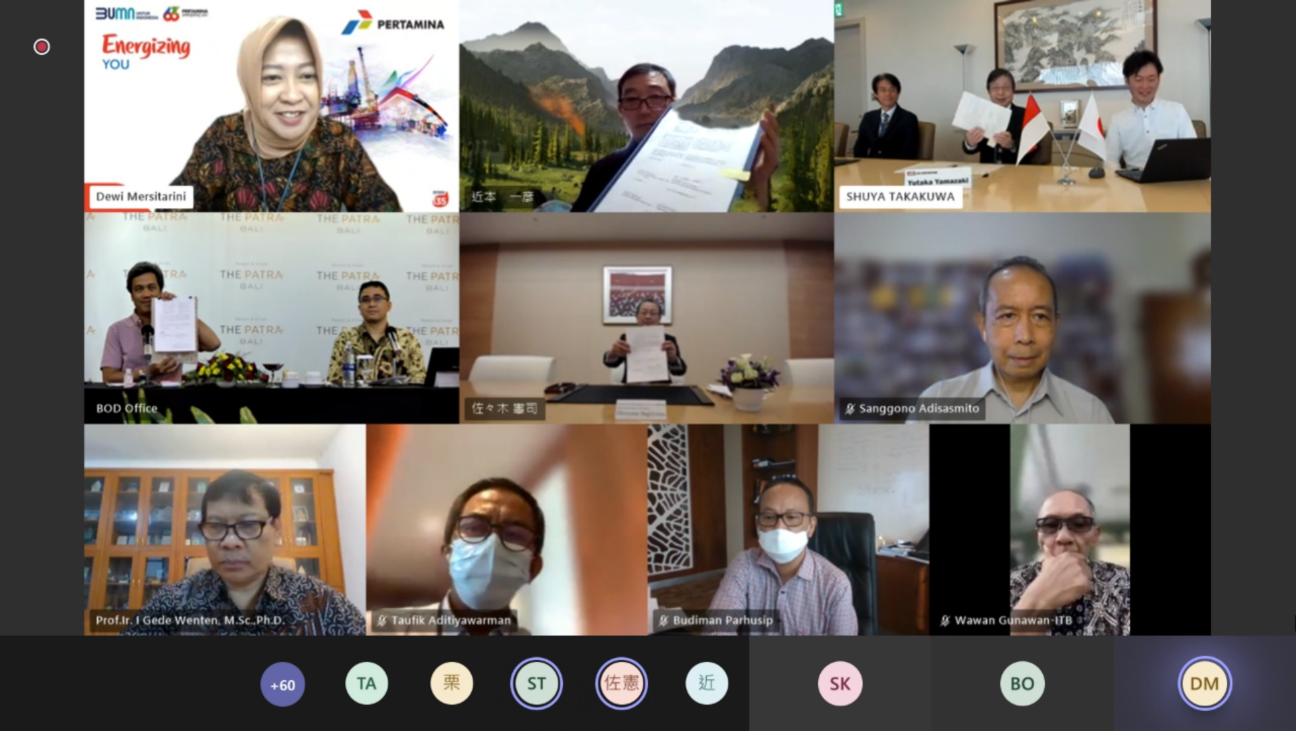News Releases 2021
Jul. 19, 2021
Commencement of Feasibility Study for the First Southeast Asia CCS Demonstration Project in Gundih Indonesia
JGC Holdings Corporation has announced that the JGC Group energy and environmental consulting company, Japan NUS, has joined with JGC Corporation, an overseas EPC company and Electric Power Development Corporation (J-POWER) in being awarded a contract by the Ministry of Economy, Trade and Industry (METI) to conduct an "Ongoing Survey on the feasibility of applying Joint Crediting Mechanism (JCM) to the CCS Project in the Gundih Gas Field" in fiscal year 2021.
This move relates to the production of natural gas in the Gundih gas field located in Central Java Province, Indonesia which envisages the separation of CO₂ during the production process of natural gas and its transport by pipeline to an injection well nearby, where it will be stored underground. The purpose of this project is to conduct a feasibility study for the realization of the CCS demonstration project being contemplated. The three companies are scheduled to finalize the results of the survey at the end of February 2022. After that, the basic design and construction of the demonstration facility will be carried out, and the injection and monitoring of CO2 is expected to begin by the year 2025.
The conduct of this study will involve the three Japanese companies together with PERTAMINA, the Indonesian national oil company that owns the gas field, and the INSTITUT TEKNOLOGI BANDUN (ITB). A Joint Study Agreement (JSA) was signed between the five entities on June 18th of this year with the support of the countries involved.
Currently, in the main gas field, the CO₂ separated during the production process of natural gas is released into the atmosphere. The intention of this project is to make possible the injection and storage underground of the entire 300,000 tons/year of CO2 associated with natural gas production. By injecting and storing the entire amount of carbon dioxide gas per year underground, natural gas can be extracted without CO2 emissions at the production stage. In addition to contributing to the reduction of greenhouse gas emissions in both countries through the creation of credits through the use of the JCM (Joint Crediting Mechanism) system (see note), the JGC Group is also considering the possibility of future business opportunities.
If this project is realized, it will be the first CCS demonstration project in Southeast Asia, and can be expected to become a model case for CCS projects in the Asian region.
The Ministry of Economy, Trade and Industry (METI) and the East Asia and ASEAN Economic Research Center (ERIA) held the 1st CCUS Network Forum on June 22th and 23th this year. At the Forum, the Minister of Economy, Trade and Industry, Mr. Kajiyama, spoke on "Japan's CCUS development in the Asia region" and referred to this project as a "case study of Japan's contribution to the development of CCUS in Asia".
CCS, which contributes to reducing the environmental impact of the use of fossil fuels, is expected to be a trump card in the fight against global warming in the transition towards a decarbonized society. In the JGC Group's medium-term management plan, "Building a Sustainable Planetary Infrastructure 2025," which covers the five years from fiscal year 2021 to fiscal year 2025, one of the basic policies to be addressed is the expansion of business in the CCS field.
Our group has a rich track record of building CCS facilities not only in Japan, but also in Algeria and Australia. We also provide technical consulting services with energy and environmental themes, combining various methods such as surveys, analysis and evaluation, simulation, and risk assessment, and contribute to the spread of CCS through the provision of a wide range of solutions.
Note: About the Joint Crediting Mechanism (JCM)
The Japanese government's JCM (Joint Crediting Mechanism) program is designed to promote cooperation with developing countries to develop superior low-carbon technologies, services, and infrastructure. The system is designed to reduce greenhouse gas emissions through the diffusion of superior low-carbon technologies, services, and infrastructure, and to share the results of such reductions between the two countries.

Scenes from the Remote Signing Ceremony for the Joint Study Agreement